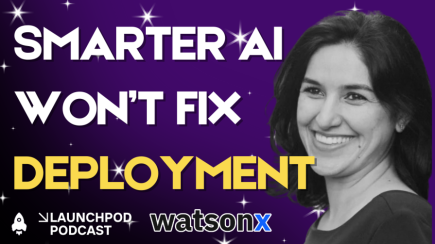In 2019, the Product Management Festival conducted research that included an analysis of the roles product managers were performing immediately before they transitioned into product management. The most common route was from project manager to product manager.

Why is this the case, and should all product managers acquire the skills of a project manager?
Project management skills are those required to effectively coordinate the delivery of a project from its inception to completion. These skills encompass initiating a project, planning its execution, and then carrying out that plan, which involves communication, organization, and leadership.
For instance, when an organization decides to integrate a new customer relationship management (CRM) system into their website, a project manager will be involved from the beginning. They will understand the parties involved and the scope of work, bring together different areas of expertise to define deliverables within an agreed timeline and budget, maintain oversight over activities to ensure deliverables and constraints are met, and communicate progress to all stakeholders until the integration is complete.
Like any role, success in project management requires a combination of hard and soft skills. These range from understanding various project management methodologies and managing risk to problem solving and team management.
The table below lists hard and soft project management skills that can benefit project and product managers alike:
| PROJECT MANAGEMENT SKILLS | |
| Hard skills | Soft skills |
| Methodologies |
Team management
|
| Planning |
Time management
|
| Scheduling | Leadership |
| Scoping | Communication |
| Forecasting | Negotiation |
| Tracking | Organization |
| Reporting | Problem solving |
| Budgeting | Interpersonal |
| Risk management | Decision making |
| Cost management | Adaptability |
| Task management | Collaboration |
You might be thinking, “These are the skills needed for a project manager, but I am (or aspire to be) a product manager.” However, the reality is that many of the skills required to be a successful project manager overlap with those needed to excel as a product manager.
Product School defines product managers as individuals who bear “the responsibility for a product throughout its life cycle, from idea generation to post-launch evaluation.” This definition mirrors the one we provided earlier for project management.
When Harvard Business Review explored what it takes to become an exceptional product manager, they included among their list of core competencies:
Much of product management relies on principles of project management. This overlap explains why many people transition from project management into product management. However, for those transitioning from other non-project-based roles, it’s essential to develop these skills as quickly as possible for success in product management.
How you approach developing your skills will depend on the type of skill it is. However, in general terms, here are some strategies for honing key project management skills:
There are many books and courses on different approaches to delivering projects, from waterfall and agile to PRINCE2. In reality, all the work you’ve worked on has been delivered using one of these methodologies. This allows you to look back over project artifacts, see how they were put together, and speak to those who managed their delivery.
Popular books that cover project methodologies include Scrum: The Art of Doing Twice the Work in Half the Time, Doing Agile Right, and Project Management for the Unofficial Project Manager.
Your ability to plan projects successfully comes from your ability to gather all of the information needed to make informed decisions. What tasks must be done to complete part one of the project, and in which order? How long will each of these tasks take and who will be involved?
Everything you deliver, from a small product change to a larger feature, is an opportunity to learn how to plan and schedule, understand dependencies, handle scope creep, and develop contingency.
Scoping is just another word for determining what the requirements are for a project, and this is a skill that is core to the success of a product manager. Where this impacts project management is through first understanding what needs to be done so you can plan accordingly (see above) and then ensuring the scope doesn’t change during the course of the project without appropriate adjustment of the wider plan.
As every project and product manager knows, one of the most frequently asked questions when you’re in that position is “When will this be delivered?” — which, when related to project management, is often accompanied by the question, “How much is this going to cost?”
Answering these questions requires an ability to look into the future and provide the best determination of what the future state will look like, which can only be done by a thorough understanding of the current state and desired future state. Books and courses can provide you with theory on how to approach forecasting; however, developing your skills in scoping, communication, decision-making, and leadership will help create an environment where forecasting becomes easier.
These skills should be familiar to a product manager, as the ability to track and report on performance is key to success.
The difference when it comes to projects is that you’re tracking different elements (task completion and budgets, not user behavior) but the general principle is the same. How you’re tracking and reporting will depend upon the project methodology being used, so start by understanding those in order to support your knowledge in this area.
Budgeting doesn’t always come naturally to product managers. Again, there are books and courses out there that cover the specifics. However, within a product management role, you should be looking to understand the overall value that a new feature may deliver, which in turn requires understanding the effort needed to deliver and operate the feature. Project budgeting is very similar.
Closely linked to forecasting, risk management relates to understanding what might go wrong that would impact the project’s ability to get delivered as forecasted. Is there uncertainty over how a particular area will be delivered and so estimates on effort could be out? Are there periods of time when the likelihood of impacting events occurring is increased?
A project management approach would be to mitigate these risks and provide more certainty. This is typically managed by a RAID log. RAID stands for risks, actions, issues, and decisions.
Project management focuses on coordinating activities across all areas of the project. Therefore, it’s important for those taking on this role to master time management.
Product and project managers need to deliver all of their responsibilities on time to set the benchmark for all others involved, often requiring them to be one step ahead of all other project team members. For example, if the project update needs to be given to the leadership team on Friday, the project manager will need to have collated all feedback from the team prior to Friday to prepare the update.
There are many books on productivity, from Getting Things Done by David Allen to The 7 Habits of Highly Effective People by Stephen R. Covey.
All projects are delivered by multiple individuals or teams, so collaboration with others is key for success. The ability to collaborate comes from understanding requirements in all areas, understanding activities contributors are undertaking, and providing opportunities for good two-way communication between individuals.
Much of this comes from day-to-day conversations when working with others. However, it’s important to provide regular structured opportunities for review and clarification as a project group — many of which will be driven by the methodology being followed.
Communication lies at the heart of both project management and product management. Whether it’s communicating the project vision or communicating its status, this role requires sharing information in a way that can be understood by others and acted upon.
Purely project-related documentation or communication checkpoints will be driven by the methodology. Thus, understanding which approach you’re taking will inform how you should approach communication with your stakeholders.
The environment in which a product manager operates can vary greatly from one organization to another. In some cases, other team members, such as a product delivery manager, may take on some of the project management tasks. In other situations, the product manager might shoulder all these responsibilities.
If you’re aiming to work in an organization where the latter scenario is more common, it’s crucial to be able to showcase your project management skills alongside your product management skills.
To illustrate your product management skills, you might use examples like, “Introduced feature W that increased metric X from Y to Z.” However, when it comes to demonstrating project management skills, your examples should reflect specific coordination abilities. For instance:
By definition, if you’re already in or transitioning into a product management role, you likely already possess many of the skills needed for successful project management. These can range from team collaboration to clear communication. However, there are certain specific activities related to projects that can be beneficial for product managers to learn.
Project management activities aren’t always explicitly required of a product manager. Nevertheless, being able to demonstrate these skills and apply them in your everyday product management tasks can significantly enhance your chances of achieving success with your products.

LogRocket identifies friction points in the user experience so you can make informed decisions about product and design changes that must happen to hit your goals.
With LogRocket, you can understand the scope of the issues affecting your product and prioritize the changes that need to be made. LogRocket simplifies workflows by allowing Engineering, Product, UX, and Design teams to work from the same data as you, eliminating any confusion about what needs to be done.
Get your teams on the same page — try LogRocket today.

Rahul Chaudhari covers Amazon’s “customer backwards” approach and how he used it to unlock $500M of value via a homepage redesign.

A practical guide for PMs on using session replay safely. Learn what data to capture, how to mask PII, and balance UX insight with trust.

Maryam Ashoori, VP of Product and Engineering at IBM’s Watsonx platform, talks about the messy reality of enterprise AI deployment.

A product manager’s guide to deciding when automation is enough, when AI adds value, and how to make the tradeoffs intentionally.